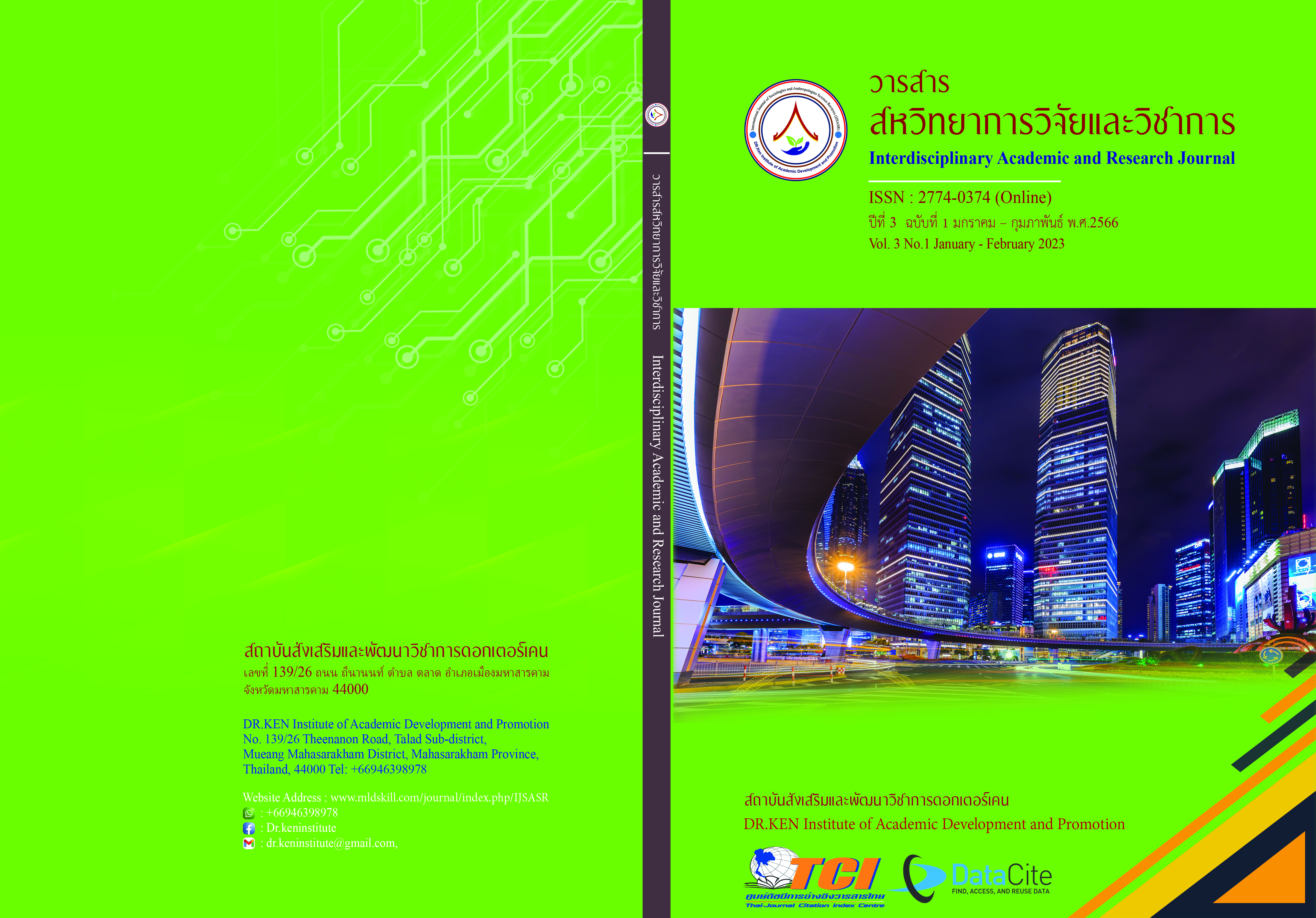Concepts of the Origin of the Ancient Greek Constitution
DOI:
https://doi.org/10.14456/iarj.2023.4Keywords:
Concept; , Birth of the Constitution; , Ancient GreekAbstract
The constitution has a long history But there is clear evidence in England. King John's era which is a cruel king, uses their power without boundaries. On June 15, 1215, 25 nobles and prelates forced King John to sign a document known as The Great Charter, Magna Carta which is a contract between the king and the nobles and monks In the Great Card, the organization and powers of the Great Council (Magnum Concilium) were determined and the King would collect certain taxes as specified. without the approval of the Grand Council, A person can be arrested and detained only when There is a lawful verdict on this Mahabat. Some lawyers see that It was the first constitutional law. Thus, this paper aimed to study the history of government in ancient times such as the Government in the Greek democracy which emphasizes equality until a mechanism has been invented to verify the person who will serve in the administration of the country both before taking office and after leaving office which is surprising that the ancient society also saw the importance of these things and was able to create a mechanism to support them effectively By dividing the constitutional government into 4 different eras, including the Spartan City-State Tradition Constitution Traditional Constitution of the City-State of Athens Dragon's Tradition Constitution Solon's Tradition Constitution. The finding found that the theory and concept related to the acquisition of senators is Sovereignty Theory. or against sovereignty cannot be found Sovereignty is inevitably different for each regime, such as in a democracy. Sovereignty belongs to the people That is, the people are the supreme authority in governing the country. in an absolute monarchy, The sovereign power belongs to the monarch. is that the king is the highest authority in governing the country, etc. Incidentally, this sovereignty is the most important element of being a state because being a state is outside From having to consist of territory, population, and government, there must also be sovereignty. That is to say, that country must be a country that can have supreme power. (Sovereignty) in self-government can therefore be called a "state".
References
ไชยันต์ ไชยพร. (2557). แนวคิดทางการเมืองและสังคม หน่วยที่ 2 แนวคิดทางการเมืองและสังคมของ อาริสโตเติล. สาขาวิชารัฐศาสตร์ มหาวิทยาลัยสุโขทัยธรรมาธิราช
ทินพันธุ์ นาคะตะ. (2560). ปรัชญาการเมือง. พิมพ์ครั้งที่ 2. กรุงเทพฯ : สำนักพิมพ์ แห่งจุฬาลงกรณ์มหาวิทยาลัย
นรพัชร เสาธงทอง. (2559). ปรัชญาการเมือง. กรุงเทพฯ: มหาวิทยาลัยปทุมธานี.
บวรศักดิ์ อุวรรณโณ. (2538). กฎหมายมหาชนเล่ม1 วิวัฒนาการทางปรัชญาและลักษณะของกฎหมายยุคต่างๆ. พิมพ์ครั้งที่ 3., กรุงเทพ : วิญญูชน.
บวรศักดิ์ อุวรรณโณ. (2538). คำอธิบายกฎหมายมหาชนเล่ม1. กรุงเทพ : นิติธรรม
ปรีดี เกษมทรัพย์. (2539). นิติปรัชญา. กรุงเทพฯ: โครงการตำราและเอกสารประกอบการสอน คณะนิติศาสตร์ มหาวิทยาลัยธรรมศาสตร์.
สมบัติ ธำรงธัญวงศ์. (2539). การเมือง แนวความคิดและการพัฒนา. กรุงเทพฯ: สำนักพิมพ์เสมาธรรม.
สุกิจ ชัยมุสิก. (2554). ทฤษฎีการเมืองและจริยศาสตร์. กรุงเทพฯ: มหาวิทยาลัยมหามกุฎราชวิทยาลัย.
สุขุม นวลสกุล และคณะ. (2539). ทฤษฎีการเมืองสมัยโบราณและสมัยกลาง. กรุงเทพฯ: สำนักพิมพ์มหาวิทยาลัยรามคำแหง.
อมร รักษาสัตย์และคณะ. (2539). ประชาธิปไตย อุดมการณ์ หลักการ และแบบอย่างการปกครองหลายประเทศ. กรุงเทพฯ : จุฬาลงกรณ์มหาวิทยาลัย.
Clade Leolercq. (1996). Institutions politiques et droit constitutional. 2nd edition, Paris : Litec.
Rene David. (1978). Les grands Systemes de droit Contemporain. Paris : Dalloz.
Downloads
Published
How to Cite
Issue
Section
License
Copyright (c) 2023 ศิริวดี วิวิธคุณากร, สุขสมัย สุทธิบดี, ทวีพฤทธ์ ศิริศักดิ์บรรจง

This work is licensed under a Creative Commons Attribution-NonCommercial-NoDerivatives 4.0 International License.
Copyright on any article in the Interdisciplinary Academic and Research Journal is retained by the author(s) under the under the Creative Commons Attribution-NonCommercial-NoDerivatives 4.0 International License. Permission to use text, content, images, etc. of publication. Any user to read, download, copy, distribute, print, search, or link to the full texts of articles, crawl them for indexing, pass them as data to software, or use them for any other lawful purpose. But do not use it for commercial use or with the intent to benefit any business.
















.png)


